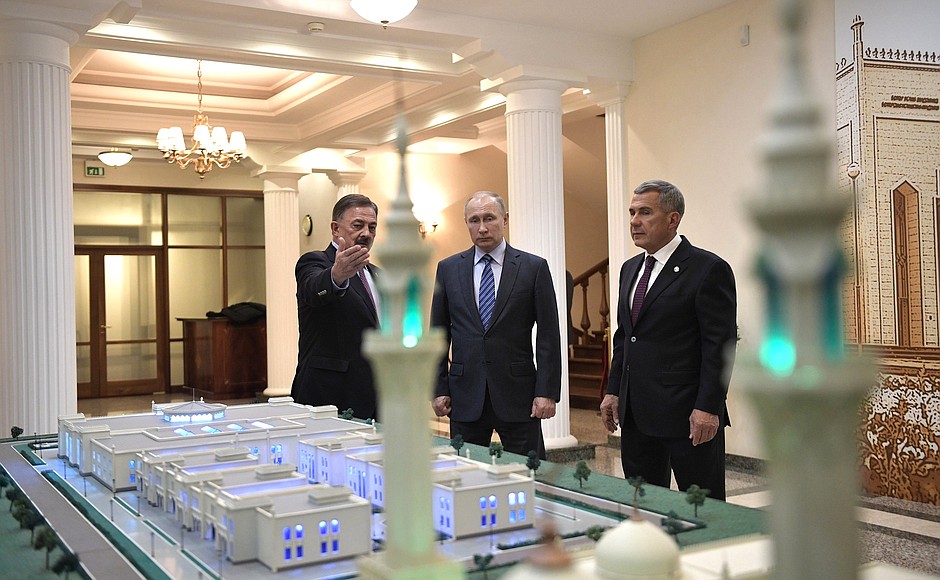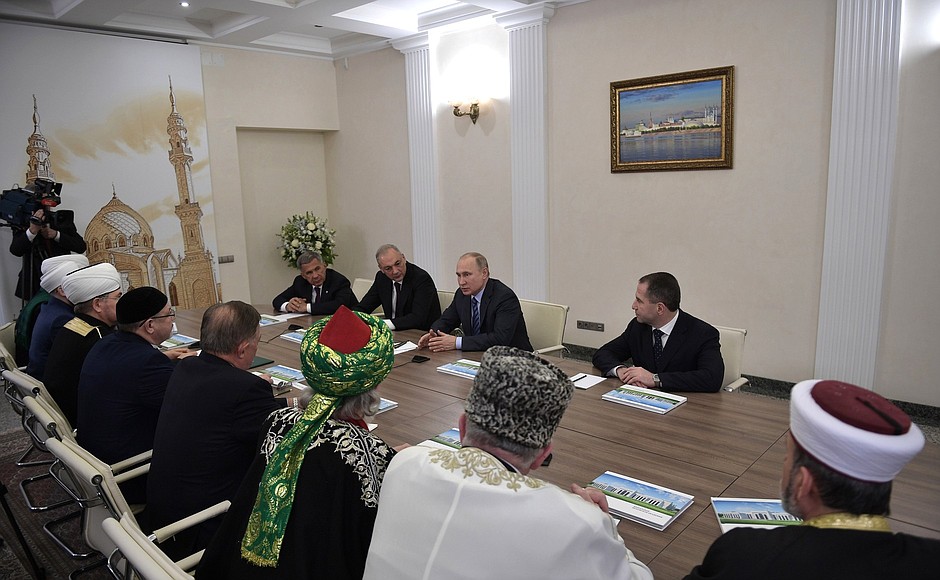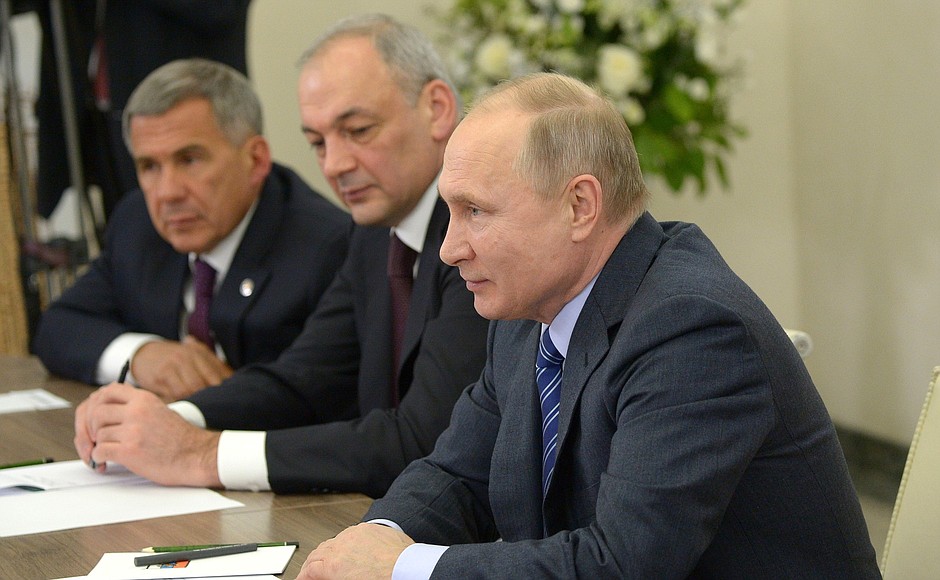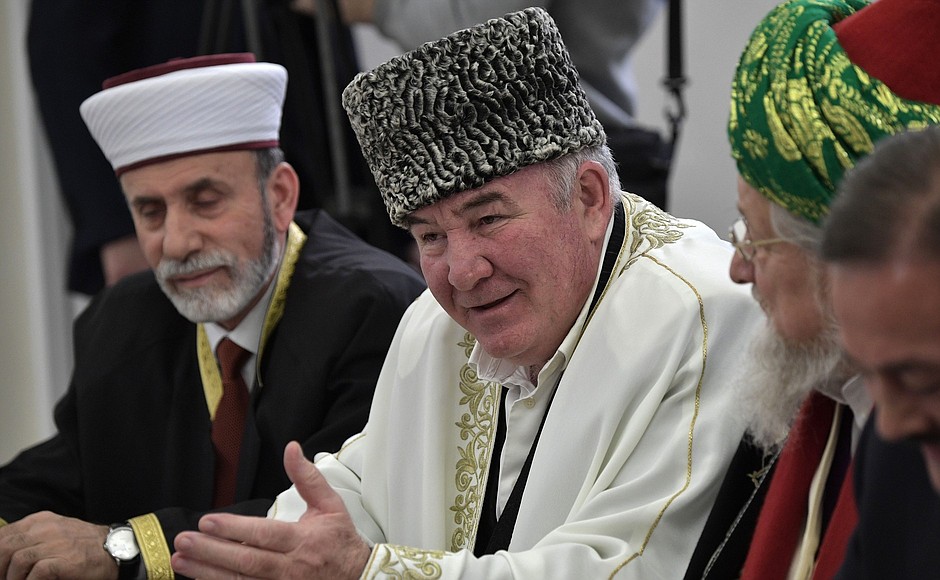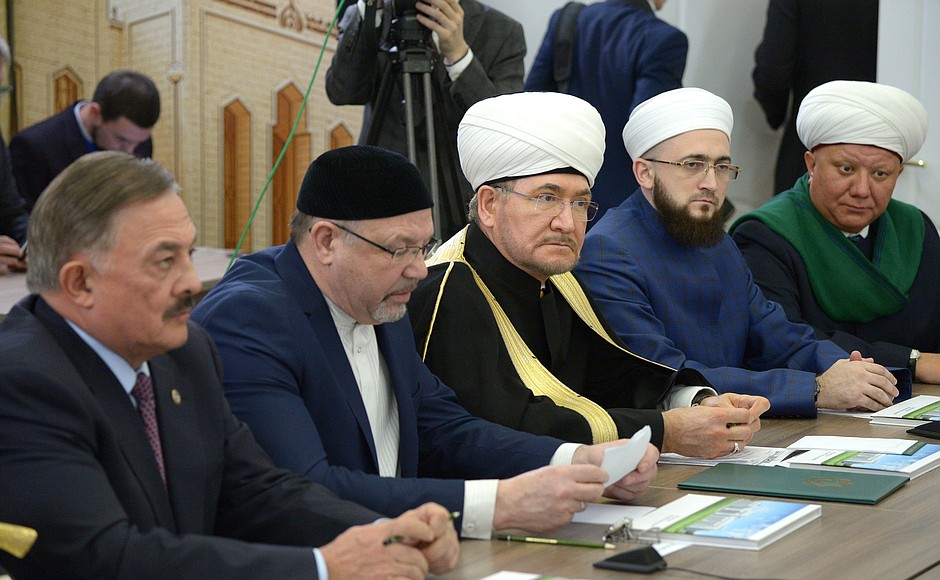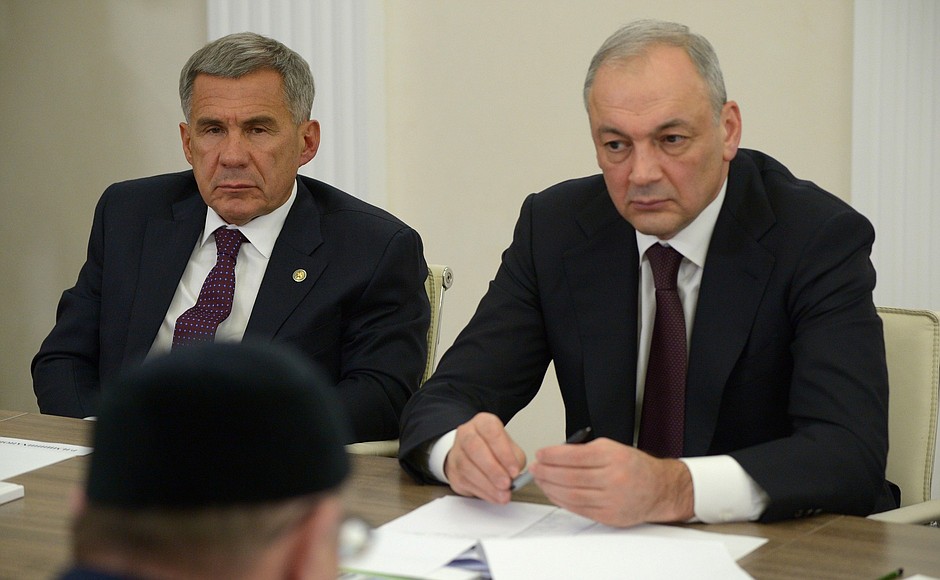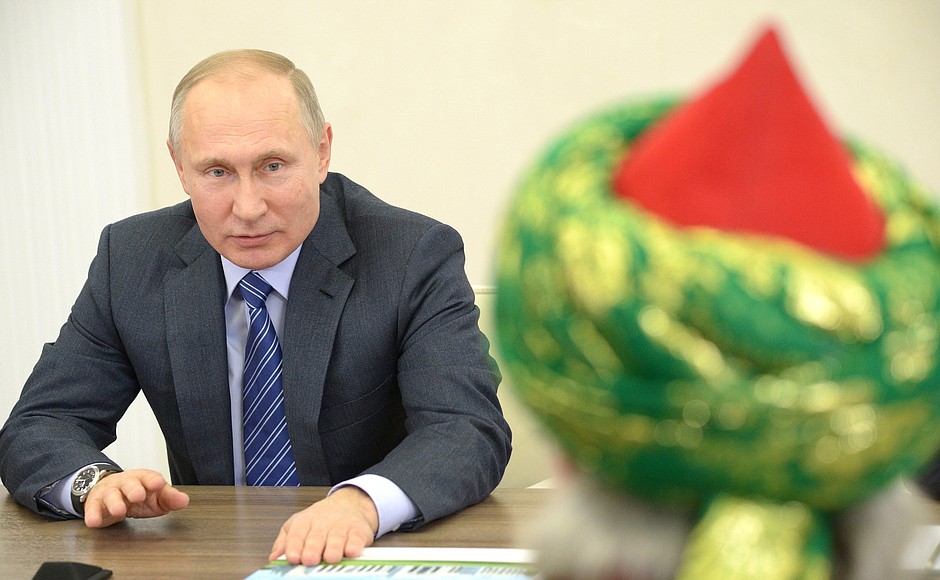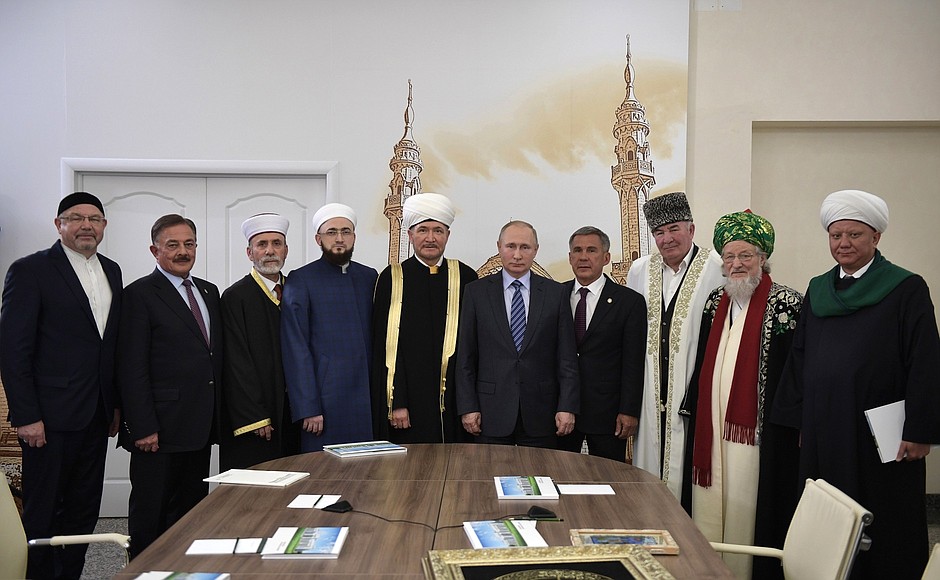The meeting participants discussed the creation of an integral system of religious education, the further development of the Russian theological school and the initial performance results of the Bulgarian Islamic Academy.
* * *
President of Russia Vladimir Putin: Good afternoon, friends, or is it good evening?
See also
As you know, I have come here from Ufa, where I met with your esteemed colleague. I remember meeting many leaders, including some who are present here, at the celebrations of the 225th anniversary of the establishment of the Central Spiritual Administration of Muslims in Russia in Ufa in 2013. We said then, and I want to repeat this, that traditional Islam is, unquestionably, a vital element of the Russia’s cultural code and that Muslim Ummah is unquestionably a vital part of the multinational Russian people.
Back then, we spoke about the need to revive the system of Islamic theological education in Russia. Islamic education has always been very deep and has a long history. We have said today that before the 1917 revolution, Muslim theologians from Russia and their opinions were highly respected around the world. It is true that much of this heritage, if not all of it, was lost or watered down during the Soviet period, and we need to create a new theological school now.
As you know, I immediately gave my support to this initiative of the Tatarstan leadership, and Mr Shaimiyev started implementing it – let us wish him health, for he is a bit unwell now, but I hope he will get better soon. The establishment of the Bulgarian Islamic Academy completed the development of the theological triad, which comprises madrassas, universities and the academy.
I want to thank everyone who has contributed to this project. Without your active position, and without the sponsors, whose names you know very well, this project would not have become reality. It is an attractive project of importance to the country.
Let us talk about its development and the additional measures we should take so that not only this project but also other projects, possibly more modest but nonetheless important projects, are implemented where people need them, and so that we create our own theological school while respecting the achievement of the Islamic world in this area.
We have talked about this many times with some of those present here. But time flies, and the venerable age of some of our muftis makes us think about the need to train their successors, which should be done at home and based on the precepts of traditional Islam.
<…>
